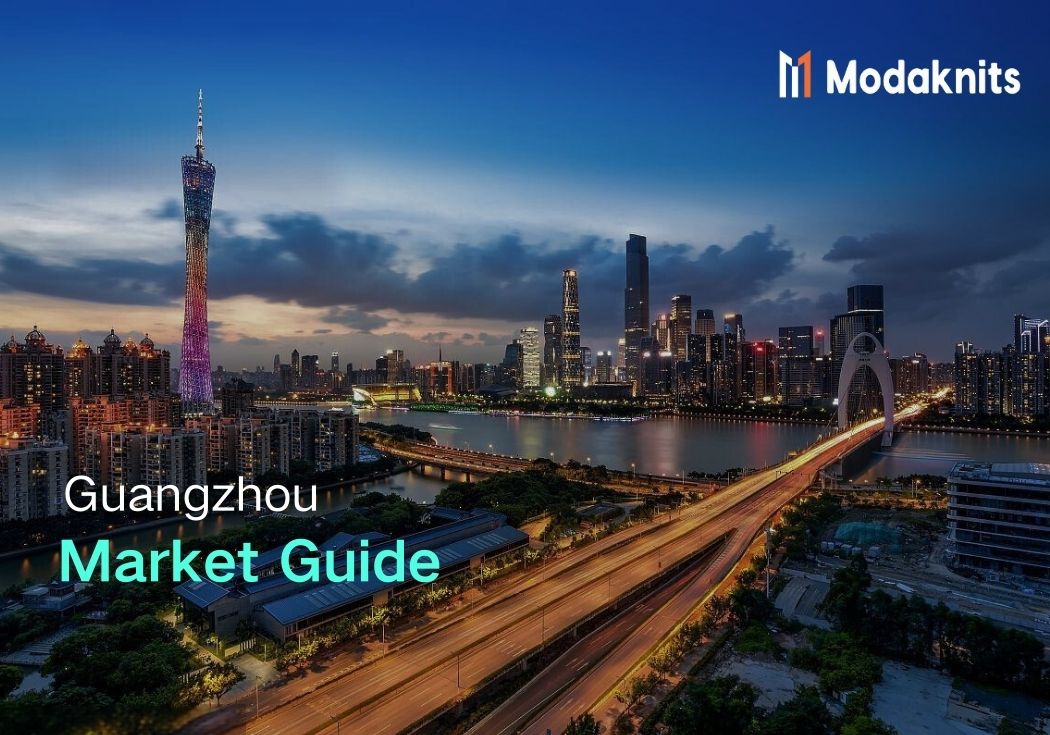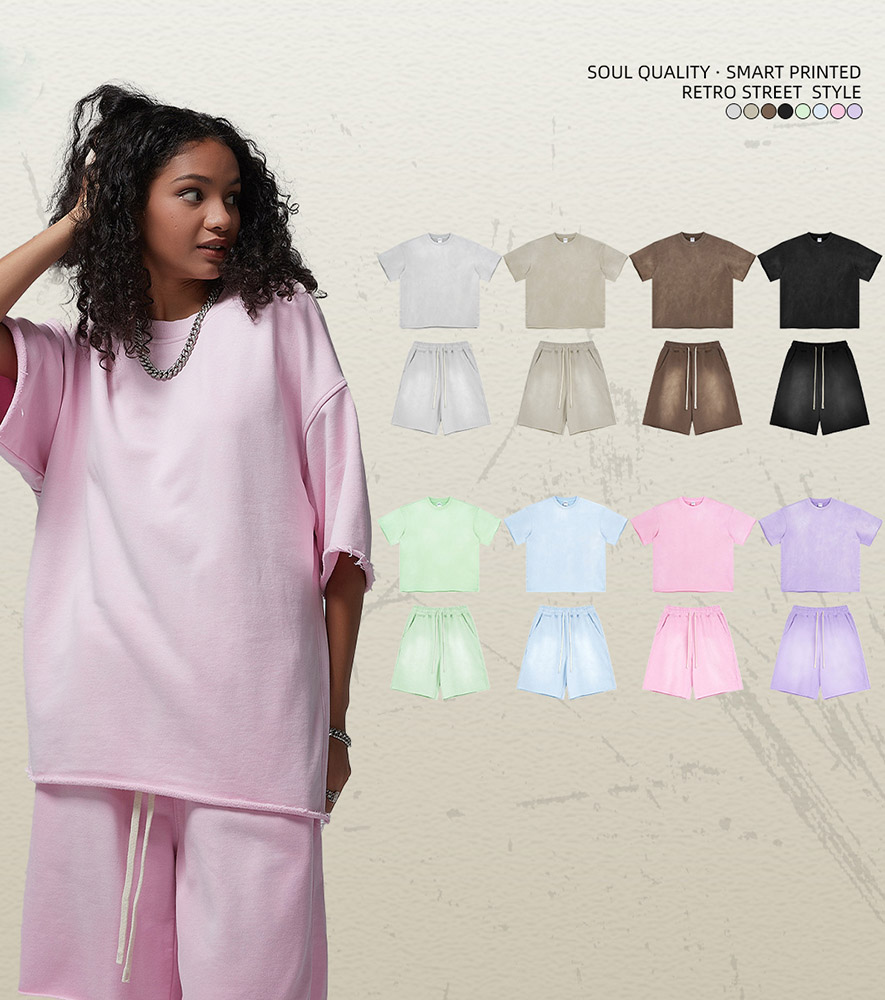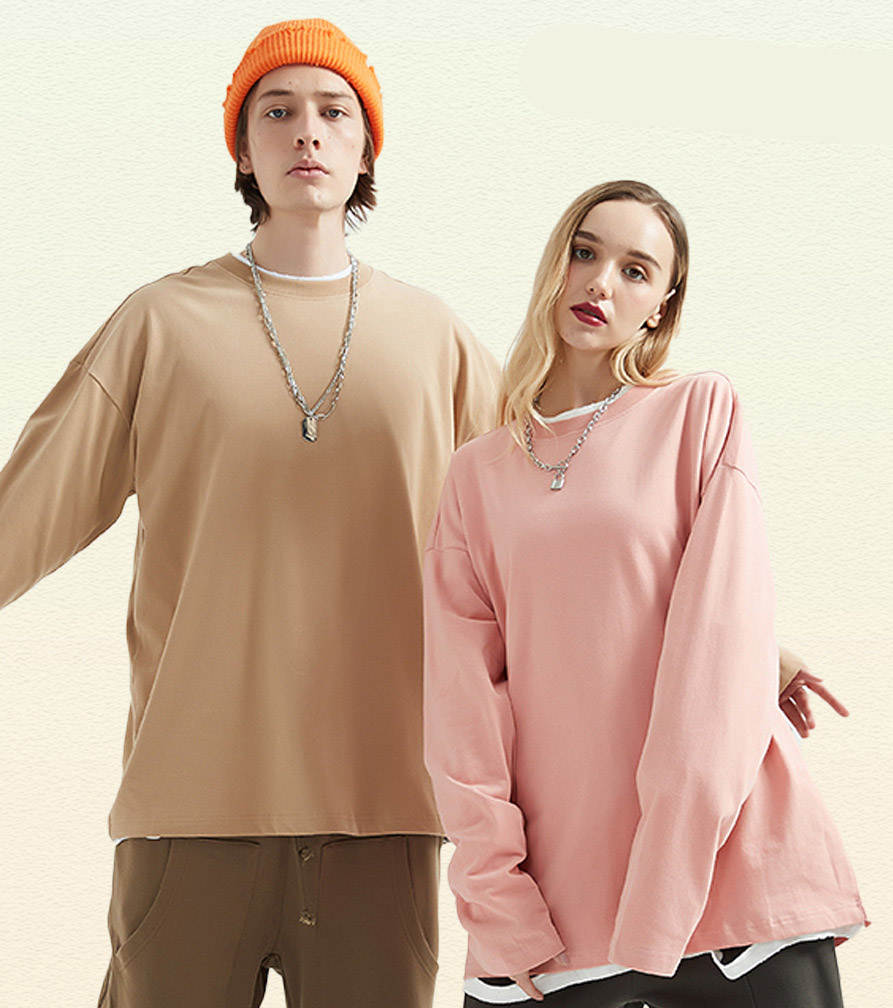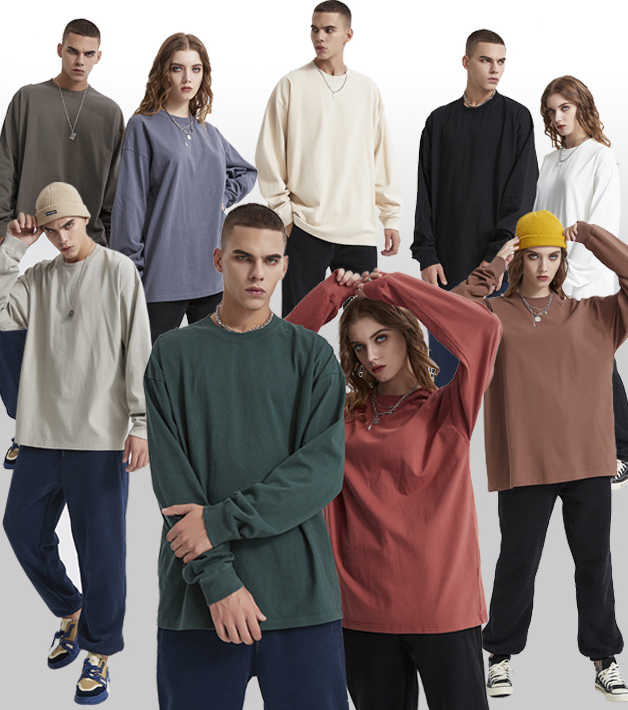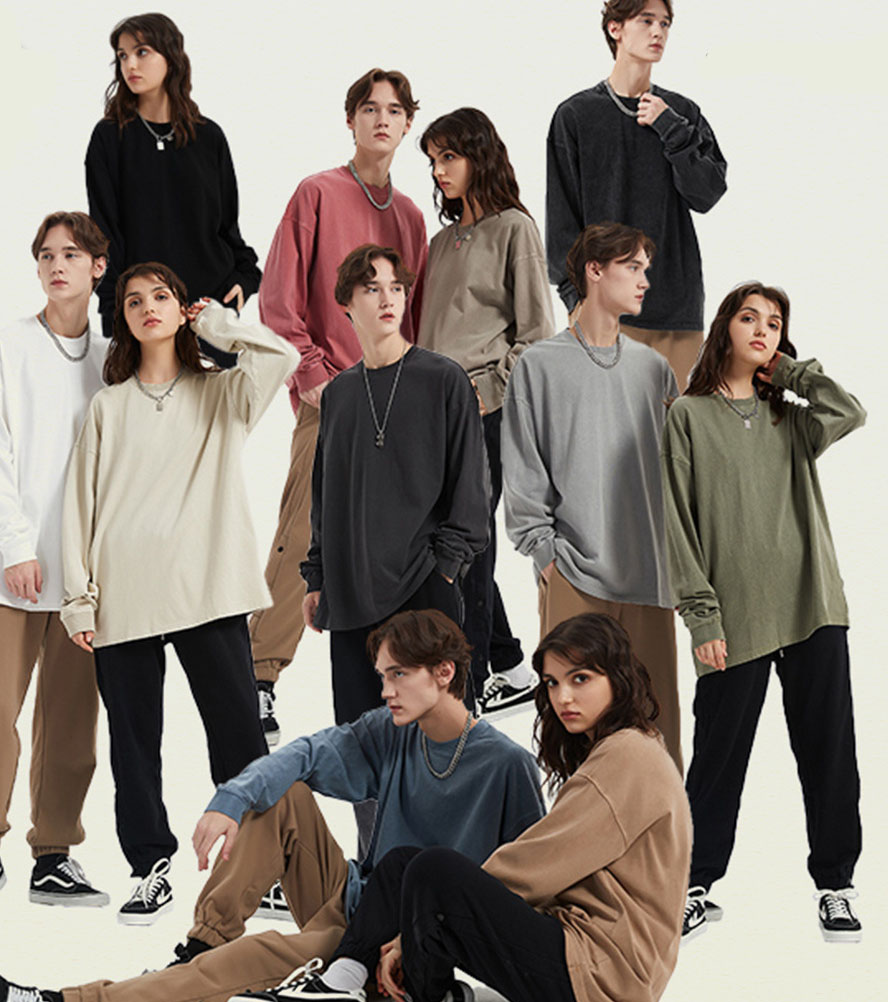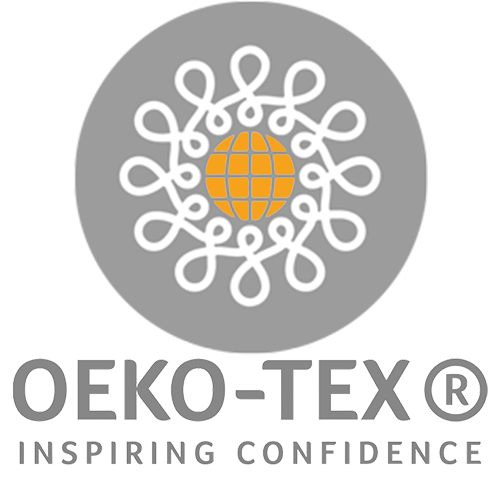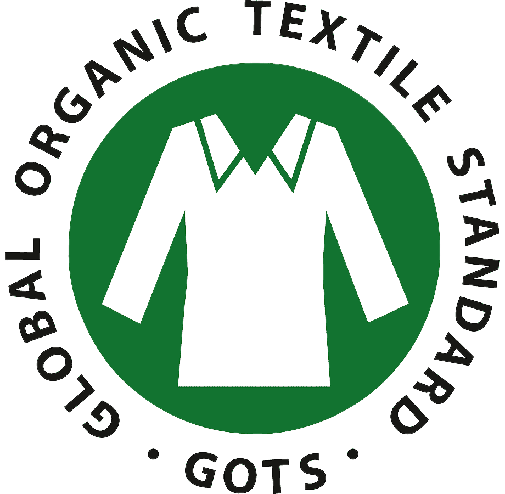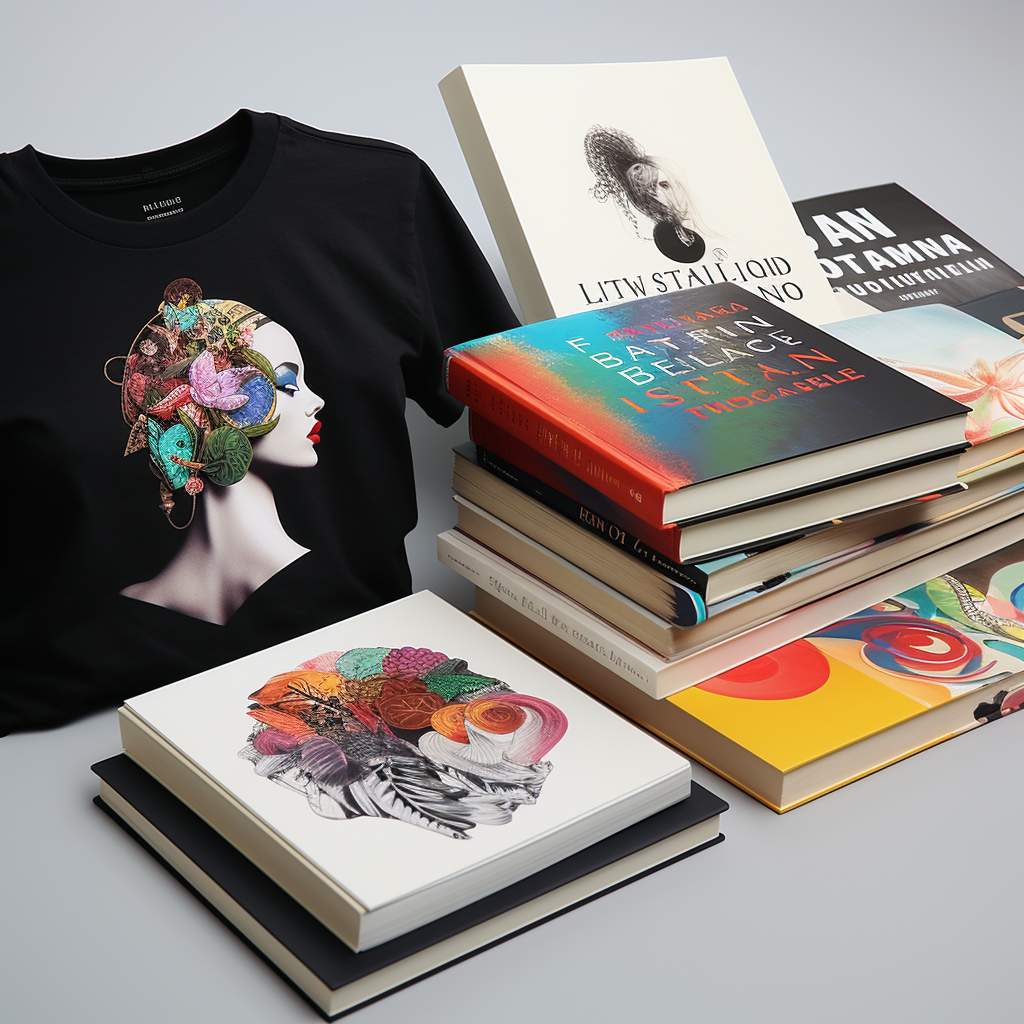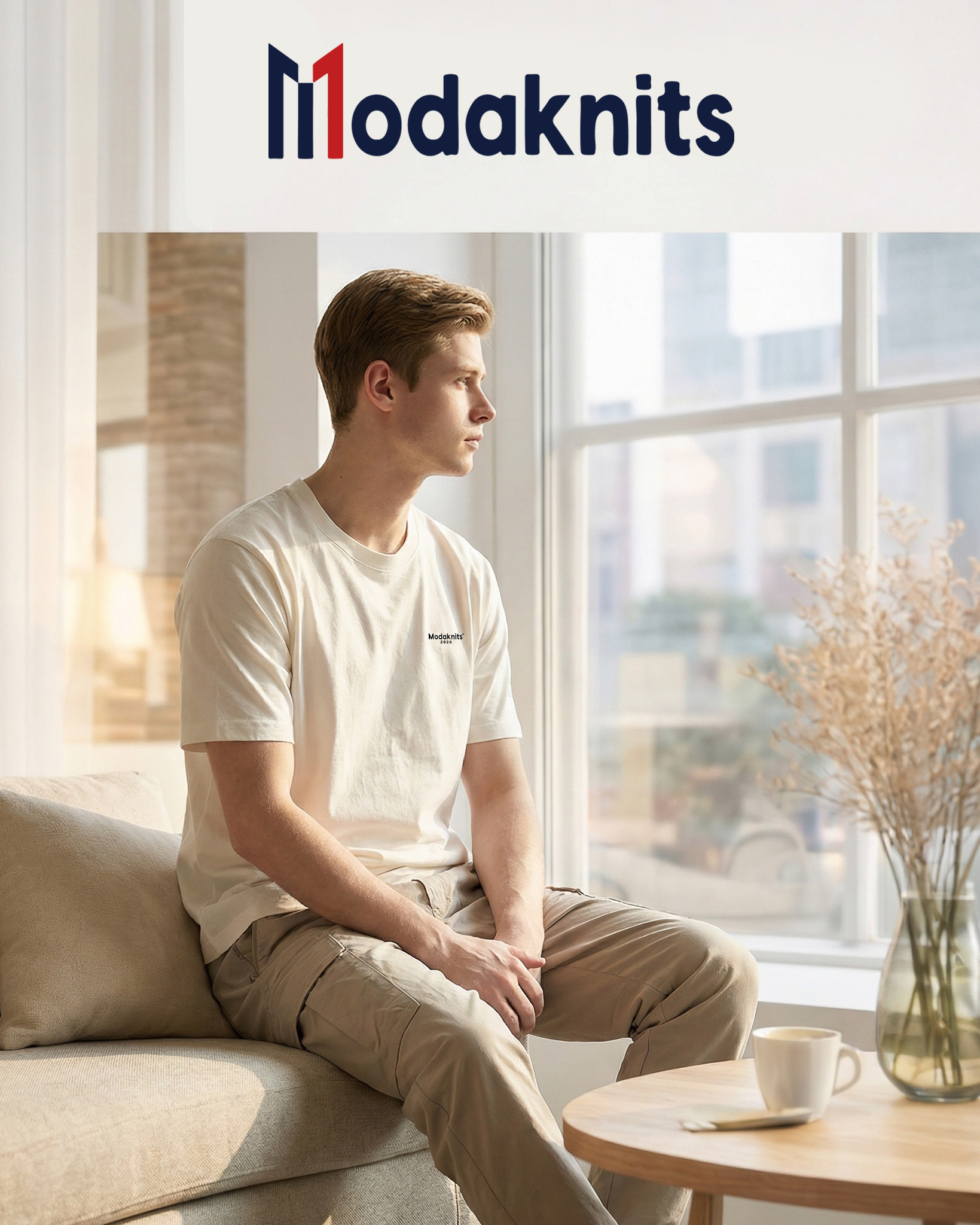Launching your fashion brand doesn’t have to mean reinventing the wheel. Private label wholesale clothing1 lets you enter the market faster, with less risk and lower upfront cost—if you do it right. But what does it really take, and how do you avoid costly mistakes?
Private label wholesale means selecting ready-made garments from a manufacturer’s catalog and branding them with your own label, packaging, and hangtags. You get the look and feel of a custom brand—without having to develop patterns, source fabrics, or set up a supply chain from scratch.
As the founder of Modaknits, I’ve helped dozens of startups and retailers build scalable, profitable brands using this model. Here’s a deep-dive playbook—full of industry tactics, case studies, and tips for long-term growth.
What Does Private Labeling Mean in the Wholesale Clothing Industry?
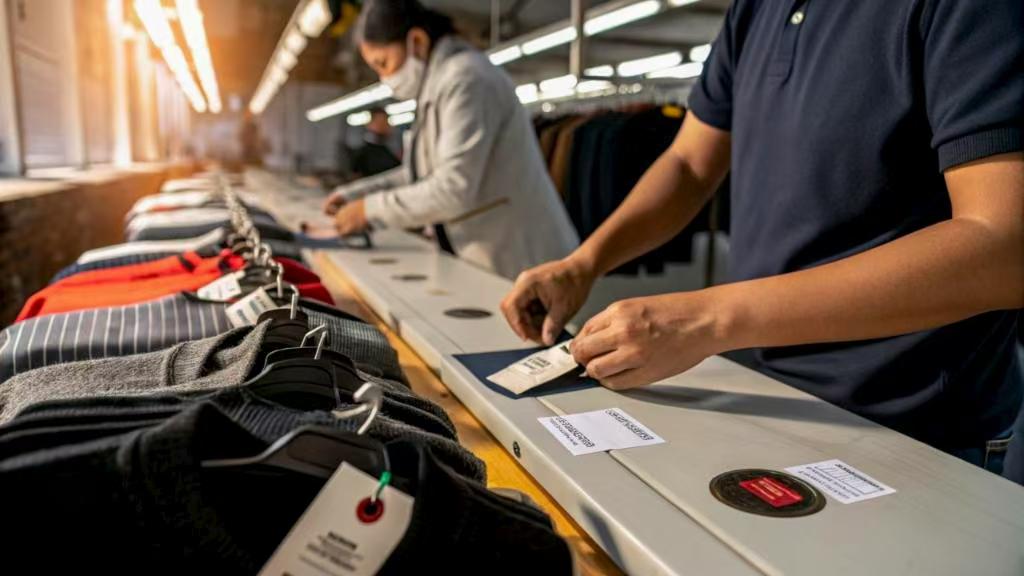
Labeling process
How is private labeling different from buying wholesale without branding?
The main difference is ownership of customer experience and perceived value.
- Plain Wholesale: Buy generic, unbranded apparel, then resell. No brand loyalty2 or margin power.
- Private Label Wholesale: Add your label, care tags, and packaging—controlling every touchpoint with the customer.
| Model | Branding | Customer Loyalty | Margin Potential | Best For |
|---|---|---|---|---|
| Wholesale (unbranded) | None | Low | Low | Discount/bulk shops |
| Private Label wholesale | Full (your brand) | Medium to High | High | DTC, boutiques |
| White label | Minimal | Medium | Moderate | Mass retail chains |
A US startup once ordered 1,000 blank T-shirts to resell—low cost, but low return customers. Another brand ordered the same quantity as private label, added their logo and unique packaging, sold out in half the time, and saw 35% higher repeat business.
What advantages does private labeling offer fashion startups3 and retailers?
Major benefits:
- Brand Premium: Sell at 20–80% higher retail than plain goods.
- Speed-to-Market: Launch in weeks, not months—no need to develop from scratch.
- Market Testing: Try many SKUs with low risk; quickly double-down on bestsellers.
- Customer Retention: Personalized unboxing, storytelling, and social sharing foster loyalty.
- Supply Chain Agility: Use supplier’s stock patterns to minimize inventory risk.
An Australian athleisure startup launched with three private label SKUs, testing demand in 150-piece runs. They scaled only the bestsellers, achieving 42% net margin in year one—compared to industry averages of 18–25%.
How Private Label Apparel Manufacturers Enable Wholesale Opportunities
Do private label manufacturers offer ready-made collections for branding?
Yes—most leading factories offer a comprehensive catalog:
- Best-selling categories: T-shirts, sweatshirts, leggings, joggers, sports bras, caps, etc.
- Manufacturers often provide in-stock samples for instant review.
- Many update catalogs each season, offering new fabric and trending silhouettes.
| Product Type | Branding Options | Typical MOQ | Available Customization |
|---|---|---|---|
| Tees/Hoodies | Neck label, logo | 100–300 pcs | Color, print, fabric |
| Activewear/Yoga | Logo, tags | 150–300 pcs | Performance fabric, fit |
| Accessories | Patch/label, tags | 300–1,000 pcs | Fabric, color |
Great suppliers help you choose seasonal bestsellers and even suggest fabric upgrades or trending color palettes.

Can you customize fabric, fit, and logo on wholesale private label items?
Yes, but customization varies by supplier and order size.
- Logos & Labels: Woven labels, printed logos, silicone badges, heat transfer, etc.
- Fabric Options: Many offer performance, eco, organic or recycled blends, often with an added fee.
- Fit Tweaks: Minor changes (length, waistband, sleeve) often possible, sometimes with a small sample or pattern fee.
- Packaging: Upgrade to custom bags, recycled boxes, retail-ready kits.
| Custom Option | Typical Process/Cost | Impact |
|---|---|---|
| Logo application | $0.5–$1.5/unit | Boosts brand identity |
| Fabric upgrade | +$1–$3/unit | Supports premium positioning |
| Minor fit adjust | $100–$200 dev. fee, +1–2 wks | Better market fit, more unique |
| Custom packaging | $0.2–$1/unit | Better unboxing, social sharing |
Steps to Private Label Wholesale Clothing Successfully
How do you find reliable private label apparel manufacturers4 for wholesale?
Best practices for sourcing:
- B2B platforms: Alibaba, 1688, Sewport, Maker’s Row (US), Tradeshows like MAGIC or ISPO.
- Industry referrals: Ask other founders, join sourcing forums, check supplier reviews.
- Due diligence: Verify business licenses, visit factories (virtually or in person), request past order references and live video calls.
| Sourcing Channel | Strengths | Weaknesses | When to Use |
|---|---|---|---|
| Alibaba/Sewport | Broad options, fast | Quality varies, vetting needed | Early-stage research |
| Trade shows | See/touch samples, direct talk | Travel cost/time | New launches, big orders |
| Referrals/networks | Trusted introductions | Limited reach, slow | When you have an industry network |
What’s the typical process from design approval to bulk delivery?
- Catalog Selection: Choose base styles and sizes.
- Brand Asset Submission: Send logo, artwork, label, and packaging files.
- Sample Production: Manufacturer creates pre-production sample for approval (1–2 weeks).
- Order Confirmation & Contract: Approve sample, sign terms, pay deposit (30–50%).
- Bulk Production: Factory produces order (3–6 weeks typical for most categories).
- QC & Final Approval: Inline and final quality checks, customer can request 3rd-party inspection.
- Shipping: Arrange air or sea freight, finalize payment, receive tracking and import docs.
| Stage | Key Activities | Timeline | Risk Management |
|---|---|---|---|
| Sample approval | Approve all details, fit, logos | 1–2 weeks | Keep sample for reference |
| Bulk production | Ongoing QC, clear communication | 3–6 weeks | Regular status updates |
| Shipping | Confirm logistics & paperwork | 1–3 weeks | Use insured shipments |
Minimums, Costs, and Lead Times for Wholesale Private Label Clothing
What are typical MOQs when ordering wholesale private label apparel?
- Bestsellers (tees, hoodies, shorts): 100–300 pcs/style.
- Functional or niche (yoga, compression, outerwear): 200–500 pcs/style.
- Accessories (caps, socks): 300–1,000 pcs/style.
- Many top suppliers offer "pilot" MOQ for first orders to build trust.
How does pricing work—per piece vs. bulk rates?
Pricing drops as order size increases and customizations are standardized.
| Order Quantity | Base Unit Price | Logo Fee | Fabric Upgrade | Final Unit Cost | Order Total |
|---|---|---|---|---|---|
| 100 pcs | $10.00 | $1.00 | $2.00 | $13.00 | $1,300 |
| 300 pcs | $8.20 | $0.75 | $1.30 | $10.25 | $3,075 |
| 500 pcs | $7.00 | $0.70 | $1.10 | $8.80 | $4,400 |
- Sample development: $5–$10 per unit (often refundable).
- Shipping: $1–$4/pc (sea); $6–$10/pc (air).
- Import duties: country specific.
Legal and Branding Considerations in Private Label Wholesale
Do you need a trademark or business license to private label clothing?
Highly recommended:
- Register your trademark for logo and brand name protection (before launch).
- Hold an official business license for contracts, B2B payments, and legal protection.
- Comply with product labeling and fiber content laws in target countries (e.g. US, EU).
| Legal Step | Why It Matters | Practical Tip |
|---|---|---|
| Trademark | Prevents infringement, protects IP | Apply before first sales |
| Business license | Required by most suppliers/logistics | Use for import/export |
| Compliance | Ensures smooth customs, avoids fines | Consult import specialists |
How can you protect your designs and brand in a private label deal?
- Sign NDAs and exclusivity contracts before sharing full design files.
- Use staged payments and retain final approval rights for bulk runs.
- Limit manufacturer rights to your SKU—include “no sharing” and “no resale” clauses.
- Register trademarks and copyrights in key selling regions.
| Brand Protection Step | What It Guards Against | Example Tactic |
|---|---|---|
| NDA & contracts | Factory leaks, knockoffs | No design sharing allowed |
| Trademark registration | Counterfeiters, copycats | Register in US, EU, China |
| Sample retention | QC disputes, future reference | Always keep first production sample |
Quality, Reorders, and Brand Growth Strategy
How do you ensure quality and consistency for repeat orders?
- Keep a “golden sample” and reference it on every reorder.
- Demand batch QC photos and random inspection videos from the supplier.
- Use consistent SKU codes and require factory to reference prior orders.
- For multi-SKU brands, periodically test key items with 3rd-party labs.
How do successful brands scale and minimize risk?
- Test new ideas in small runs, then quickly reorder bestsellers.
- Build a supplier shortlist and diversify as you grow.
- Set up scheduled reorders and negotiate better rates for volume.
- Collect customer feedback to improve quality and fit season by season.

Industry Trends and Insights (2024 and beyond)
- Low MOQ fast fashion is dominating the US/EU market for new DTC launches.
- Eco-conscious production: Many buyers now require GRS, OEKO-TEX, or BCI cotton.
- Speed: Factories offering 3D digital samples and express development windows (as fast as 5–7 days) are favored by trend-driven brands.
- Data-driven launches: Winning brands A/B test styles via private label pilots before investing in custom OEM.
Conclusion
Yes, you can private label wholesale clothing—and it’s a proven, powerful launchpad for new brands or retail expansion5. The key: choose the right manufacturer, protect your IP, clarify expectations, and always prioritize quality and communication. With a strategic approach, your brand can move from startup to standout in record time.
-
Explore the advantages of private label wholesale clothing to understand how it can accelerate your brand’s market entry. ↩
-
Learn how private labeling can enhance brand loyalty and customer retention for your business. ↩
-
Explore the common challenges faced by fashion startups when entering the private labeling market. ↩
-
Discover tips for sourcing trustworthy private label apparel manufacturers to ensure quality and reliability. ↩
-
Understand how private labeling can facilitate retail expansion for emerging brands. ↩


